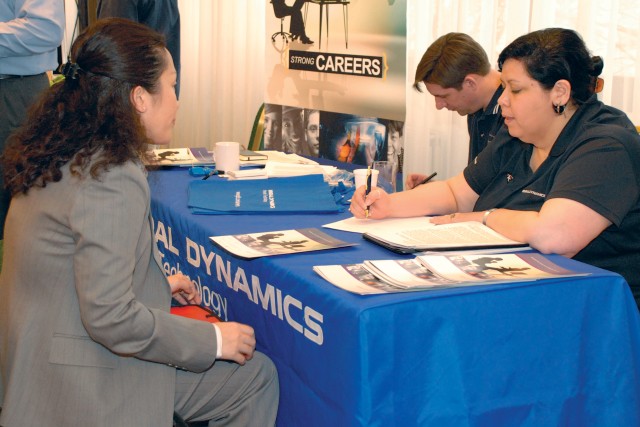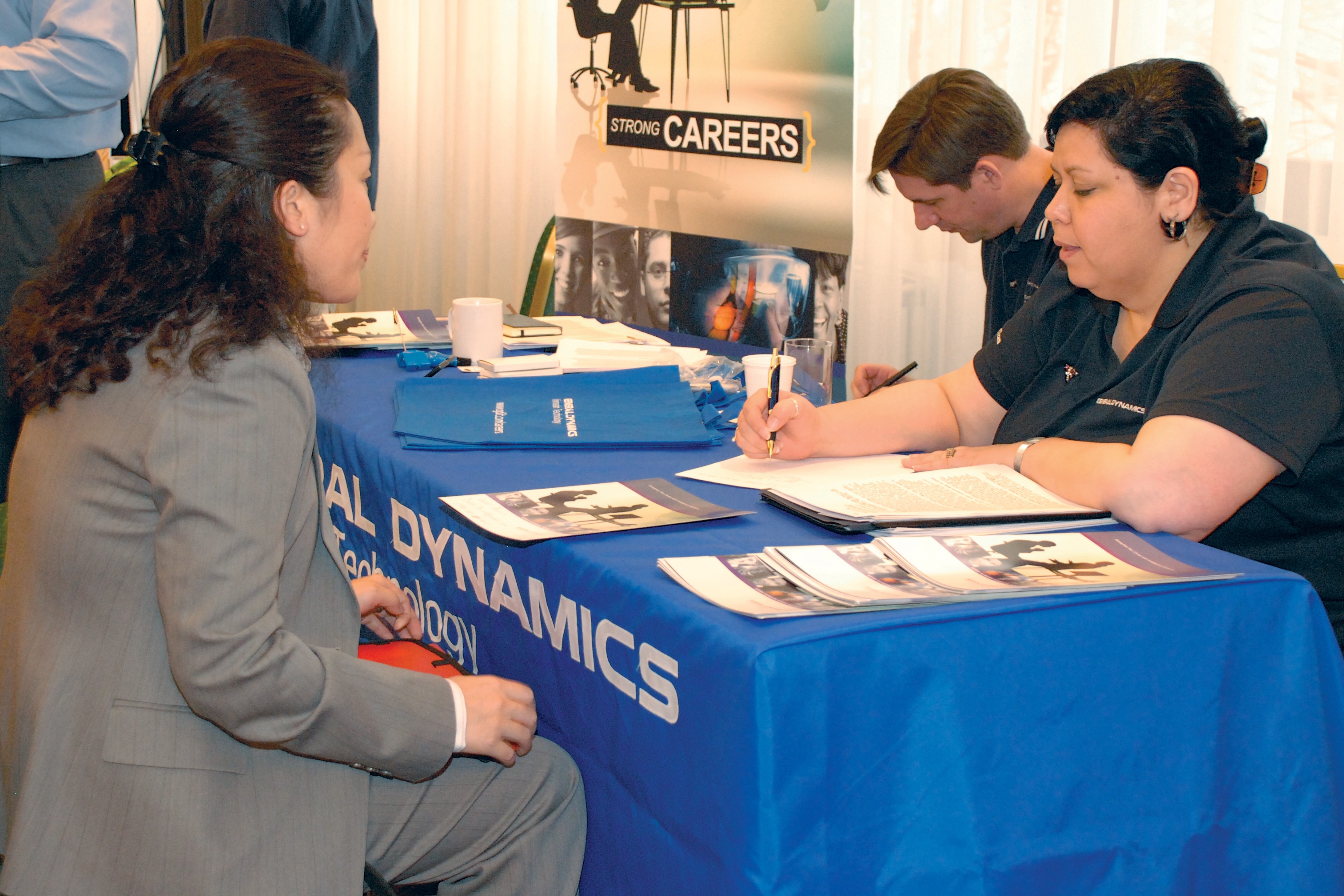STUTTGART, Germany -- Healing is a warrior in transition's mission.
After 18 months of therapy and treatment, Staff Sgt. Tyrone C. Basnight, assigned to the Warrior Transition Unit in Kaiserslautern, has accomplished that mission and is about to transition to civilian life.
The 20-year veteran and his wife attended the Association of the U.S. Army Stuttgart Chapter Job Fair in the Marriott Hotel in Sindelfingen Jan. 15.
"My ideal job would be something dealing with photography," said Basnight, 38, who expects to be medically retired from the military by March 1. "It's my passion."
But the signal support systems specialist from Pittsburgh, Pa., interviewed with representatives from 20 major defense contractors and Defense Department agencies for a position more closely aligned with his military experience.
"If you find a good job, you've got to take it," said Basnight, the father of five. "Here, [good jobs] seem to be everywhere, so you've got to pick the right one."
This is the second year that the AUSA Stuttgart chapter has sponsored the job fair, with the support of U.S. Army Garrison Stuttgart's Army Community Service.
"We're providing the service member in Europe with the ability to access major defense companies," said AUSA's Bill Campbell, who organized the event.
The flip side, he said, is that the job fair provides defense contractors access to eager, willing and qualified employees.
Defense contractors and government agencies find that military vets are ideally suited for employment.
"For us, because we are a defense contractor, [military veterans] know our customer better than anyone else because they used to be our customers," said Joanna Peyton, of Computer Sciences Corporation.
Chris Foley, Lockheed Martin's program manager for Europe, agreed. "Military vets come in and can do the job on Day One. They bring quality, loyalty and mission focus - that's everything we are about," he said.
There are 176 Soldiers assigned to the Warrior Transition Battalion in Europe spread across 13 locations, according to Gina Starrett, the USAG Stuttgart Soldier and Family Assistance Center program manager.
Approximately 72 of these Soldiers, along with their families, attended the three-day job fair.
"The challenge in Europe is that Soldiers don't always have access to the number and variety of support programs like they do stateside, and they don't have a lot of time," Starrett said.
She said after a medical board, a Soldier may have up to 90 days before separation. "That can be a shock, especially when you have to move your vehicles and household back home, plus consider taking leave. It's a unique challenge," Starrett said.
"We want [these Soldiers] to serve the civilian sector as successfully as they did in the military," said Ruby Crockrell, a physical evaluation board liaison officer with the Kaiserslautern Warrior Transition Unit.
Crockrell said the transition back to civilian life can be frightening for some. "If you've been in the Army for eight years, you are attached. To know you have to leave - there are many insecurities and fears."
Crockrell reflected on the Soldiers' progress. "When they came to us, many couldn't walk. Some were flat on their backs. This is, indeed, a day of victory," she said.


Social Sharing